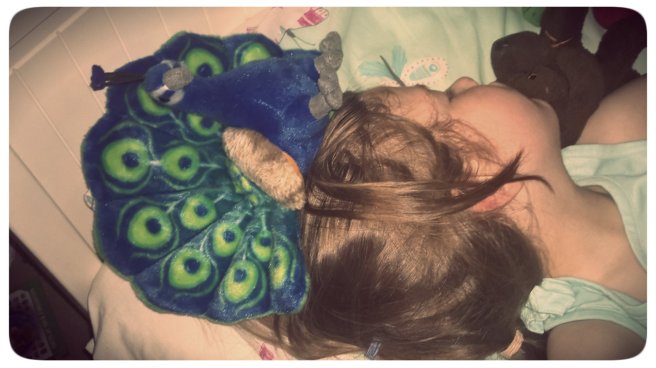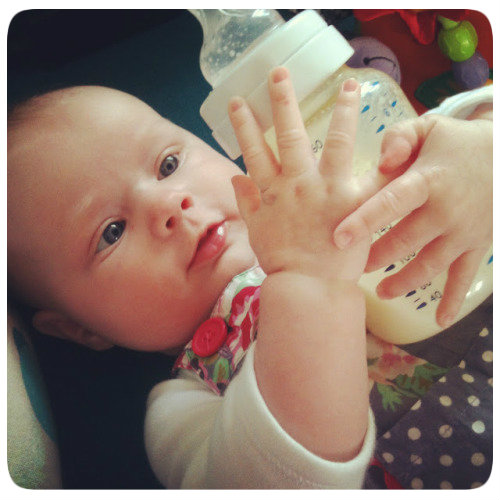Before you start guessing, it’s not ‘I love you’. No, the words I want to tell you about are far more powerful and I discovered them purely by accident.
I would class my six year old daughter as high maintenance. That may be unwarranted. She may be just like every child but my only other example is autistic and believe it or not, his needs are pretty straight forward – keep everything exactly the same, only feed him crisps, let him be naked from the waist down and we’re onto a winner.
My daughter has the ability to take me from calm to rage in a very short space of time, usually when she’s being so bloody ungrateful. I try to cater for all her quirks as much as possible in a way to ensure her life is nourished; full of adventures and experiences that will fill her brain with wonderful memories. But no matter what I do, she seems to always find something to complain about, using those immortal words, “it’s not fair!” (They’re not the three words, by the way. I’m keeping you hanging on for those just a bit longer.)
The reason I want to fill my daughter’s life with happiness is to ensure she knows she’s loved. I suffer with, as the wonderful Jack Monroe put it, a wonky head. It’s on perfectly straight but my brain likes to make me feel very sad sometimes. During these times, I’m not a great parent. I have no patience. I’m emotionally distant. I tumble into a black hole and disappear from view from my children. I know this because my usually happy to go to school girl finds it hard to get through the day without an emotional wobble about missing me. These children are a lot more attuned to our feelings than we give them credit for.
‘Attuned’ is a word I’ve only recently become accustomed to. It’s a word that has helped shift my wonky head into seeing there is a something more than love.
During my low periods (and I’m not talking about my menstruation), I try to tell my daughter as much as possible how much I love her. The guilt I feel about not having the energy or inclination to bake cakes or ride bikes or just sit with her and listen to what she has to say overwhelms me, but I know that as long as she knows she’s loved, she’ll be okay. So sometimes, when she’s irritating me, I’ll tell her, “I love you, but that thing you’re doing…please stop.”
It was when she was feeling a bit poorly, and my wonky head was starting to metaphorically straighten up. She was desperately telling me all of her symptoms. She felt hot, her tummy ached, her head hurt and she couldn’t sleep. I was giving her all my usual concerned patter, getting her medicine, giving her a cold flannel for her head, rubbing her tummy, but nothing was making her feel better. She looked up at me, her eyes full of urgency and discomfort and something compelled me to softly say, “I believe you”.
I saw her exhausted, tensed up body visibly loosen and she finally laid her head on the pillow and was able to succumb to her tiredness. As I laid with her and she fell asleep, I reflected on those three words. Why had they made such a difference when all of my acts of love hadn’t?
I have surmised it was because of this. In that moment, I had actually attuned to what she needed. To just have me say, “I hear you”, “I get it”. She had probably got so used to me ‘listening’ when I’m a million miles away in my head, that the confirmation I was actually present in the here and now and completely understood, helped her cope with her symptoms. Or perhaps she just needed me to be in the here and now because that’s where she was. Where all children are. In the moment.
It’s made me realise that she’s not actually that ungrateful or high maintenance. There’s me naively thinking I’m loving her unconditionally, but it’s entirely dependant on her being grateful for all these wonderful, exciting experiences I’m providing her – these things that aren’t happening till tomorrow, or three hours later. She’s not thinking about that. She’s a child living in the moment and at that moment, something catastrophic may have rocked her world. Like, I’ve given her the wrong temperature water to drink, or the swing didn’t swing enough.
I’ve used “I believe you” a number of times now, all with the same effect and all in different circumstances. Not to fob her off – she’s already proved she’s far too attuned for that. But when I can see I haven’t really been present. I get easily absorbed in looking at my phone, or needing to answer that email, or trying to tidy the shit tip that is my house and actually, she really needs to know I’m here. In the here and now, present in the moment and I totally get her. No ‘I love you, but…’, just unconditional, ‘I hear you’.
I can’t always fix her feelings. I can’t always fix mine. I suppose sometimes, it’s just about letting them be.










